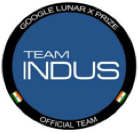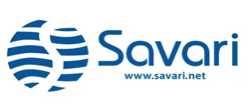
Every sector has a long period of evolutionary change that is only occasionally interrupted by a short (5-10 year) period of intense non-linear change. Global corporates like GE are able to position themselves to successfully embrace the evolutionary change. However, to leverage the period of non-linear change, a new kind of partnering model is needed.
Keeping in mind this theme, iSPIRT, India’s software product think tank, spent an hour with Jeff Immelt, CEO of General Electric, and his team, to discuss the implications of such non-linear change to GE and the larger global ecosystem. To drive home the point, six inspiring startups showcased their respective cutting-edge innovations that are helping drive change in their individual sectors. Their stories are captured, in brief, below.
Team Indus
Infrastructure for NextGen Apps
Team Indus, a highly qualified group of ex-ISRO scientists and systems engineers, spoke to GE of two moonshots they are attempting. Literally. The first is landing a privately funded spacecraft on the moon by 2017. As part of this mission, they India’s only entry, and top 3 of 16 global teams, in the Google Lunar XPrize Competition.
The second is a derivative of the first, where they aim to put up a high-altitude long-endurance platform to deliver payload to stratospheric orbits. In laymen’s terms, they are enabling wide-area connectivity for terrestrial applications, essentially disrupting satellites as they’ve been known and used. And at the current pace of progress, they are on track to be the leader in Asia by 2021.
Nimble Wireless
Cold Chain Monitoring
Nimble Wireless’ pioneering IoT solution is built on top of the future of pervasive connectivity that TeamIndus is working towards. Their platform helps enterprises connect, control and manage their business critical assets to enable greater efficiencies and savings. A great use case is in helping leading food/cold chain companies ensure food safety and reduce wastage, especially important in a country that has 33% malnourished children but wastes nearly a third of its dairy products. Here, Nimble deploys real time temperature monitoring and alert management systems to help ensure food safety, eliminate wastages and attain visible RoI for food and logistics companies.
Savari
V2X: Connecting Vehicles to Everything
Moving beyond the world of cold chain to the world of automobiles is Savari’s technology that connects vehicles to everything – each other, smartphones and road infrastructure. There is a battle ensuing between Silicon Valley’s revolutionary approach in favor of self-driving cars and the auto industry’s evolutionary approach in favor of connected cars. Savari’s patented middleware software is enabling the auto industry to realize the gradual, incremental change they believe is the way forward in connecting vehicles. Their technology is pushing forward safety, fuel savings and automation and ensuring auto companies don’t become ‘the Foxconn of Apple’.
Julia Computing
An Open Platform for Brilliant Machines
The consistent theme emerging is that machines are all going to be connected in not too distant a future. All well and good, but there’s a small problem. Today the programming language for machines (iron) is different from that of the cloud (silicon), where software and analytics reside. That means large time and cost investments are needed in translating algorithms between the languages to connect the machines.
Which is where Julia, an open-source language being built out of MIT, fits in. Their solution, a language with a strong mathematical foundation, serves as a common language for machines and the cloud, so the same engineers can write analytics that run on sensors and scale to the cloud. The language has visible use cases across machines (air collision avoidance algorithms, 3D printing) and cloud applications (predictive analytics, pricing algorithms), enabling immense savings in time and complexity. The industrial world until now only had proprietary platforms to choose from but now Julia provides an alternative that is open and neutral, where firms can retain strategic control of their products.
Logistimo
Open-source supply chain
Continuing with the theme of improved efficiency is Logistimo, an open-source supply chain software enabling manufacturers, distributors and after-sales partners to better reach and serve frontier markets. There are unique challenges of implementing such systems in low-resource settings of rural India, where nearly 70% of Indians live. But Logistimo’s nuanced methodologies to manage this low-resource context is what has helped reduce infant mortality, electrify villages, and improve the overall quality of life for citizens of the hinterland.
India Stack
Impact on Service Delivery
Tying this all together was the final session about a pioneering initiative, the first of its kind globally, being spearheaded in India towards a cashless, paperless and presence-less service delivery. The India Stack ties together the Identity Layer (Adhaar), a Paperless Layer (eSign, eKYC), a frictionless Payments Layer, a Transaction Layer (GSTn) and finally a privacy/data-sharing Consent Layer to revolutionize the Indian landscape in not too distant a future.
Lots going on, lots more to come. And this is just the beginning of the excitement for India and the non-linear change that the startup ecosystem is enabling.

